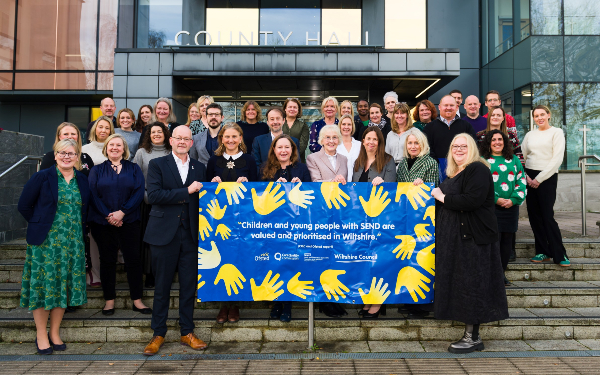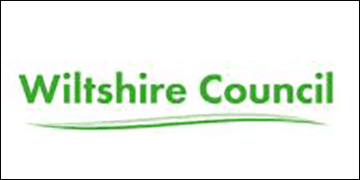“Children and young people with SEND are valued and prioritised in Wiltshire.”
That’s the opinion of Ofsted and Care Quality Commission (CQC) inspectors who visited Wiltshire to check services for children and young people with special educational needs and/or disabilities (SEND) and their families.
Wiltshire Council and the NHS Bath and North East Somerset, Swindon and Wiltshire Integrated Care Board (NHS BSW ICB) – the local area partnership – are jointly responsible for the planning and commissioning of services for children and young people with SEND in Wiltshire.
Inspectors from the CQC and Ofsted spoke to professionals, families and other partners involved in SEND before publishing their findings in a report.
The inspectors also reviewed the range of alternative provision that Wiltshire Council commissions for children and young people who cannot attend school due to their needs, or for those who have been or are at risk of being permanently excluded from school.
Inspectors’ findings on SEND provision in Wiltshire
The Ofsted and CQC report says: “Children and young people with SEND typically benefit from personalised provision delivered by dedicated staff from across education, health and social care.
“They often experience early help and support from front line services, who work together very effectively to meet children and young people’s needs and improve outcomes. Children and young people with SEND are valued and prioritised in Wiltshire.”
It adds: “Typically, children and young people’s needs are continually assessed, and provision adapted. They benefit from the strong advocacy of school staff from across the area.
“As a result, these children and young people with SEND typically achieve well and secure positive outcomes. Furthermore, children with SEND achieve positive outcomes more widely in Wiltshire.
“For example, SEND pupils typically attain well. The permanent exclusion of pupils with SEND is very low and suspensions are reducing. Most attend school regularly, reflected in the attendance of pupils with SEND being above the national average in Wiltshire.”
The judgment by inspectors means Wiltshire Council is one of only five local authorities to have received the top grade for SEND and also an ‘outstanding’ rating from Ofsted for children’s social care, since the current SEND inspection framework was introduced in January 2023.
Key findings
The SEND report also finds that:
- Frontline services work together very effectively to meet need and improve outcomes.
- Many children with SEND get targeted help and support from the start.
- Plans strongly focus on promoting children’s independence, aspirations and confidence as well as ensuring support for education and health prioritised. This helps improve social outcomes and access to their communities.
- Wiltshire children benefit from an inclusive education system. The development of the ‘ordinarily available provision for all learners’ strategy, has helped secure a system-wide commitment to inclusive practice in schools.
- When SEND children go to school there is a shared vision and commitment from all professionals regarding inclusion. Schools work with council staff, health professionals and social workers to find ways to meet the need.
- For children and young people with more complex needs, the special school and enhanced provision is stretched but effective.
- Early identification and the meeting of children’s needs benefits greatly from successful joint working.
- The local authority ensures the quality of alternative provision is checked regularly so they can review how well they meet the commissioning needs of the area.
- The local authority makes creative and effective use of alternative provision.
‘Our efforts are making a difference’
Cllr Jane Davies, cabinet member for SEND said: “We want the very best for all our children and young people with SEND in Wiltshire. This report is a positive step forward, showing that working together our efforts are making a difference, though we know there is still more to do.
“Early intervention with support and advice, strong collaboration among professionals, and involving SEND families at every stage of the journey are at the heart of our approach.
“We recognise that we’re not perfect and there’s always room for improvement, but by continuing to work closely with our families, we are certainly moving in the right direction, as the report clearly demonstrates.”
‘A culture of partnership working
Gill May, chief nurse, Bath and North East Somerset, Swindon and Wiltshire Integrated Care Board (NHS BSW ICB), said: “We are delighted that inspectors saw first-hand the positive work happening in Wiltshire to ensure children and young people with special educational needs and disabilities have the support they need to achieve the best outcomes and realise their full potential.
“Inspectors told us our culture of partnership working in Wiltshire has been incredibly positive, and that collaborating in this way has helped to improve services.
“The early years of a person’s life are often the most influential, and that is even more true for SEND children, so we will, of course, consider the report’s recommendations and work with partners to deliver any necessary improvements.”
Parent carers are ‘equal partners’
Stuart Hall, strategic director of the Wiltshire Parent Carer Council (WPCC), said: “This inspection of SEND services across the local area partnership highlighted how parent carers are equal partners in co-producing and implementing strategy, and the collective voice of parent carers informs positive change and supports improvement.
“We are delighted that parent carer led initiatives, such as the WPCC Neurodevelopment (ND) Advice Line, were recognised as a strength in the report.
“Although we are delighted that many strengths in Wiltshire were recognised, the report helpfully identifies areas that Wiltshire needs to continue to improve, such as reducing delays for children and young people, and increasing opportunities and choice for young people as they prepare for adulthood.
“The WPCC will continue to work in partnership across the local area to ensure that parent carers remain fundamental to ambitiously strengthening services for all families of children and young people with SEND as equal partners.
“We thank the many parent carers who invested their time and shared their views to contribute to this inspection.”
The report flags areas for improvement, saying the local area partnership should improve how it uses information and data for health services and work on reducing the delays that some children, young people and families currently face.
Young people’s experiences are more variable post-16 and up to age 25 in the area. The local area should continue to work in partnership to improve the education, work, health services and social integration opportunities for young people in their preparation for adulthood.
Wiltshire Council and NHS BSW ICB are already working hard together to address these.
You can read the full report here.





 Facebook
Facebook X
X LinkedIn
LinkedIn Instagram
Instagram